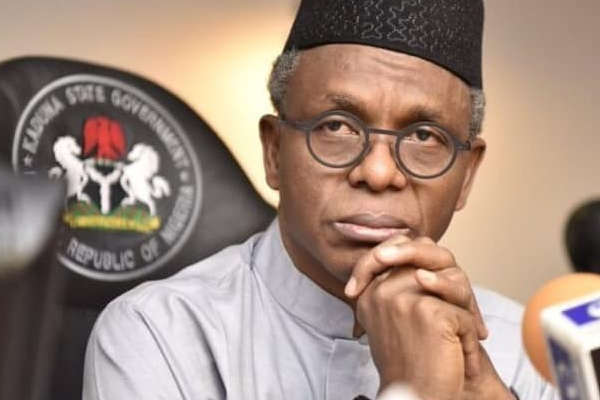METRO
Why judiciary should be decentralized — El Rufai

Gov. Nasir El Rufai of Kaduna State has called for the decentralization of the judiciary to fast track justice delivery in the country.
The governor made the call when the National President of the Nigerian Bar Association (NBA), Mr Olumide Akpata paid him a courtesy call on Tuesday in Kaduna.
“It is an anomaly to have a unitary judiciary in a federation, I am one of the major advocates of the decentralization of our unitarist judiciary to a federal one.
“We are pushing for the creation of State Judicial Councils that will handle the appointment of High Court judges in states, because that is the only way that we will be able to take our fates in our hands.
“I believe that we have enough lawyers in the public and private sectors in Kaduna state to get 20 judges tomorrow if the State Judicial Council screens them and makes their recommendations.
“But we are constitutionally constrained as we speak.”
According to him, the heavy case load of High Court Judges is hindering effective administration of justice and cited the example of Kaduna State, where a High Court judge handles about 250 cases.
“I have been making cases for the National Judicial Council to double the number of High Court judges in Kaduna State, which will reduce the case load to about 100 per judge, which is still too high.”
“I am happy that the National Assembly has started the process of removing the bottleneck and I urge the Nigerian Bar Association to openly support it,” he added.
El-Rufai argued that decentralizing the judiciary would be in the interest of administration of justice.
“It will give more opportunities for qualified lawyers in the private and public sectors and the academia to be part of the judiciary.”
The governor further argued that “bringing in outsiders always brings innovations and new ideas to improve the system.
“I do not believe that the only path to being a High Court Judge is to be a magistrate or state counsel.
“There are many other paths as other countries have shown and have produced excellent judges at all levels,” he said.
On capacity building, the governor said his administration has been committing two per cent of its federal allocation on training of civil servants, including lawyers.
Earlier, the NBA President said he was in Kaduna to interact with lawyers to bridge the disconnect the national body has with its branches.
“I am here to bridge that gap, talk to them and understand the challenges in the bar,” he added.
Akpata said the NBA would partner with the Kaduna State Government on capacity building for lawyers.
“The key issues are welfare and capacity building which we must ensure and the issue of harmonized salary scheme which was agreed to by office of the Attorney General.”




 Davido's Net Worth & Lifestyle
Davido's Net Worth & Lifestyle 
